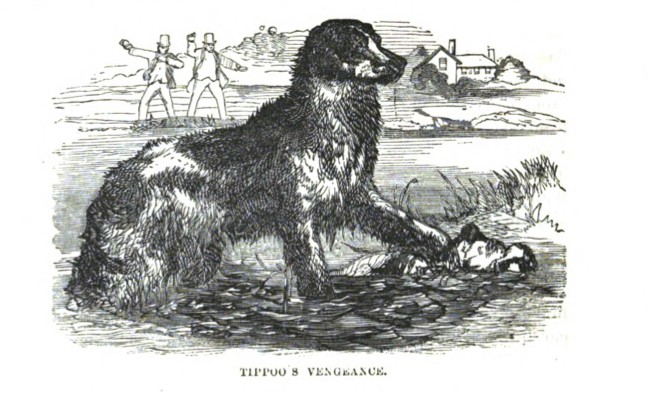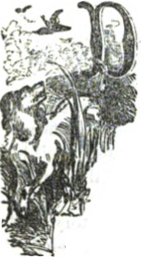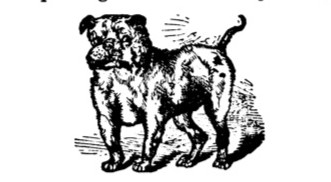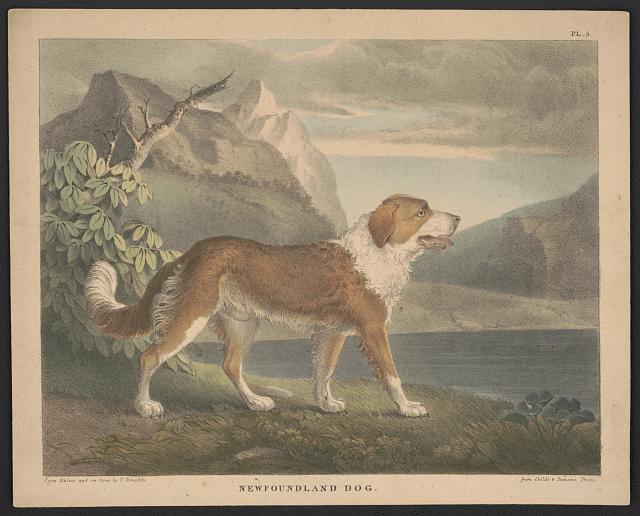My Friend Tippoo
By P. W.
Annotations by Jessica Abell


Daily experience teaches us that no reputation is at once so precarious and so mean as that of a bully. It may be all fine among a certain class of boys, for instance, to be able to “whip” any one else of your size. But just as soon as a stouter lad turns up, who is able to whip you,[1] why you become a nobody at once.
Now a good-hearted lad, even if he happen to be a young Sampson,[2] will not fight, under any circumstances, if he can possibly avoid it; and then only to punish the wrong and sustain the right, without the least desire to be known as a fighter.
Boys often make a great mistake in putting a companion down as cowardly, simply because he is too much of a man to fight, or because he give in to a smaller boy rather than have any difficulty. In truth the weakest, when the real hour of trial comes, are the strongest. A fable tells us that a lion, having caught a mouse in his paw, was moved by the earnest entreaties of the little fellow, to let him go without harm. A short time afterwards the mouse found his generous benefactor struggling in a huge net, in which he had become entangled. He at once set at work and gnawed off a sufficient number of meshes to allow the lion to escape; a beautiful illustration of the fact that the most insignificant creature in the world may often prove most useful to us.
I must tell you a story of two dogs, Tippoo and Boxer. They were neighbors of mine in early life, and I was personally acquainted with both animals. Tippoo, a beautiful Newfoundland dog, was my bosom friend, and I loved him. Always peaceful and harmless, he came at last to be the village pet.
Boxer, on the other hand, was a huge bull-dog, and Tippoo’s most relentless and cruel enemy, for which reason I hated him, and might sought his blood, but being of tender years I thought it possible that he might take a fancy to me, and me up at once. He was an ugly fellow, was Boxer, and vicious. I am privileged to annex his portrait, so that you will be enabled to judge for yourselves. Observe the ferocity of his bead-like eyes, and the aggressive protrusion of his gladiatorial chest. In justice to the dead, (for I am happy to anticipate the announcement of the offensive brute’s demise,) I feel bound to call your attention to a somewhat humorous expression of countenance, which has been faithfully preserved by the artist, and which I can honestly assert to be the only redeeming characteristic I remember to have noticed in the creature’s repulsive appearance.

But Tippoo, as I have said, was a very different kind of a quadruped. I believe him to have been the most perfect gentleman that ever stood on four legs, just as I believe Boxer to have been the most Consummate ruffian that ever was lifted, by the agency of hemp-cord, from any number of those locomotive support. Tippoo was nearly as tall as myself. I could just look over his glossy back when I had my arms around his neck. He wore a full suit of black and white, particularly snowy at the bosom. He was as strong as a lion, yet as as gentle as a lamb. Next to playing with me, (which I am proud to believe was his favorite pastime,) he delighted in nothing so much as the exercise of carrying in his mouth a favorite cat, attached to the household of which he was so conspicuous a member, to the bottom of a steep lawn; then releasing and running a race with her to the top. The cat was generally the winner, and always seemed to enjoy the triumph immensely. To this day I believe that Tippoo made a point of running slowly on purpose so as gallantly to concede victory to the weaker vessel!
Tippoo belonged to the country gentleman who resided opposite my father’s house. In my opinion, as well as that of a majority of my playmates, Tippoo was the greatest favorite in the village, up to the advent of Boxer, who came among us unexpectedly, on a visit to Tippoo’s master in the train of a sporting lawyer. As soon as that subversive brute, (Boxer–not the sporting lawyer,) has made his appearance, we all felt that good government would be deposed in favor of Might over Right. So we all clenched out little fists in secret, and waited for the turn of events.
Tippoo had not chance against Boxer. What is the use of a well-dressed gentleman, let him be every so strong or skilful [sic], descending from his carriage to do battle with a scavenger armed with mid and a shovel? He sedulously avoided Boxer, who, on his side, lost no opportunity for hunting out and persecuting Tippoo. In short Tippoo was losing character dreadfully. He neglected his food, kept his kennel, and was pronounced by his master a coward of the meanest kind. Did I forget my old friend’s good qualities, because he would not make a brute of himself? Not a bit of it! I loved Tippoo better than ever.
One day the masters of the two dogs stood on the lawn already alluded to, in amicable converse with my father, to whom I am indebted for the details of this instructive story. Boxer stood between his master’s legs, which, like his own, were bandy. I have a keen recollection of those legs–master’s and dog’s–and I remember that the while six were modelled [sic] upon the same pattern, which was one extremely distasteful to my feelings.
“Holloa!” said my father, “here comes Tippoo! We shall soon see how quickly he will sneak away when he discovers Boxer. Dreadful coward that big dog of yours, Matthews, to be sure.”
“Well, he used not to be so,” said Tippoo’s master, reluctantly, “but I confess that since Wilkins has been here with his Boxer, the overgrown cur has made me ashamed of him.”
“No occasion for that,” said the bull-dog’s master; “better dogs than Tip have run at the sight of my Boxer. Tippoo had best make himself scarce or my dog will murder him.”
Boxer certainly showed playful indications of a desire to attempt that experiment, by picking up his ears, and starting off at a brisk trot in the direction of Tippoo, who however, to the astonishment of the spectators, made no movement towards recovering the shelter of easily accessible kennel. On the contrary, he seemed to wait for his aggressor’s attack.
“Tippoo’s mad, clearly,” said Wilkins.
“Looks like it,” Mr. Matthews assented. “He isn’t acting like a dog his senses.”
“Getting very near the water though, for a mad dog,” observed my father.
And, in truth, to get near the water, was the main object of Tippoo, than whom a more thoroughly sane dog did not exist at the epoch of canine history. But his time had come.
There was a deep dyke running at the bottom of the lawn, fed from the reservoir of a neighboring mill, and which had been greatly swollen by recent rains. Tippoo, keeping his large full eyes carefully fixed upon his approaching foe, sidled in a coquettish, serpentine manner towards the brink of this artificial stream.
Then the bully flew at and pinned him. Tippoo crouched on the grass prostrate, submitting to the dastardly outrage without a growl.
“Call him off, Wilkins,” said Tip’s master in excited tone. “The purest Newfoundland in the country! I wouldn’t have him injured for a hundred dollars!”
“Hi! Boxer! Here, boy! Come here Boxer! good dog!” the sporting lawyer shouted, as a shower of sticks and stones were launched by the trip of spectators to enforce the command.
But Boxer would not let go, and Tip did not resist of run. He merely kept on slipping gradually toward the brink of the water, dragging the bull-dog with him by the mere inert force of his superior might.
Suddenly Tip gave a sudden spring, a splash was heard, and the triumph of Boxer was at the end. The combatants had rolled together into the swift, deep current of the dyke, and there they speedily changed places. I say “speedily, ” narrating as I do an actual fact; though I am aware that it may seem to require explanation, inasmuch as the grip of a bull-dog is supposed to be a final affair. I can only suggest that my gentlemanly friend Tippoo was from the first so completely on the alert as to prevent his antagonist from getting a sure firm hold. However that may be, Tippoo released from custody, in his turn, seized Boxer by the neck; held him under water and drowned him! The brave, sagacious water-dog, wrongly imagined to be a coward, knew his own power in his own element, and had watched his opportunity. Would that we were all as wise.
Ere this just execution had been thoroughly performed, Tippoo’s glossy hide was pretty well cut by the missiles hurled at him instead of his aggressor. But he received them all without so much as a wince, till he felt that his enemy under the water was throughly dead. Then he brought the ignoble carcass out of the stream, between his teeth; threw it on the grass with a jerk, and stood with his fore-paw resting on its flank wit a calmly defiant expression, that might clearly be translated by the words,
“Now, let this ugly rascal presume to take liberties with his betters. makethe best of him as he lies there!”

I know this story to be a true one. Moreover, I remember exulting over the sight of the drowned Boxer’s disfigured remains–just the least bit in the world ashamed of the feeling, perhaps, but I certainly felt it,–and doing my best to console my darling Tippoo for his unsightly wounds, by gifts of stolen refreshments, the best medicine I knew how to offer. I suppose that Tippoo, also, is dead by this time. Most of my early friends are, and it may be my turn next, as likely as not. I have finished for the present.
P.W. “My Friend Tippoo.” Youths Casket and Playmate: A Magazine for Boys and Girls, vol. 7, no. 1, Jan. 1860, pp. 14–17.
Inman, Childs &. Newfoundland Dog. 1830, https://www.loc.gov/pictures/item/2013651008/.
[1] original emphasis.
[2] The biblical figure of Samson is known for being incredibly strong.
Pedagogy
- Why did the dog’s owners not step in?
- How does this reflect what happens when people are bullied in front of others?
- Tippoo, the Newfoundland dog, is much larger than Boxer, the bulldog. Why do you think Boxer felt the need to bully Tippoo?
Contemporary Connections
Bullying is a continued problem with children. This story is to show that bully’s may win sometimes, but often are risking quite a bit when bullying others. There is always someone stronger. For more information about stopping bullying visit stopbulling.gov.